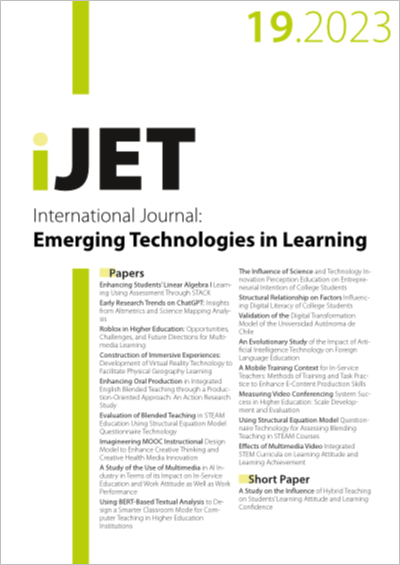An Evolutionary Study of the Impact of Artificial Intelligence Technology on Foreign Language Education
DOI:
https://doi.org/10.3991/ijet.v18i19.43821Keywords:
artificial intelligence technology, foreign language education, complexity analysis, logistic equationAbstract
This study investigates the evolutionary impact of applying artificial intelligence (AI) technology to foreign language education. By employing complex systems thinking, the relationship between foreign language education and AI technology is explored, and dynamic models are employed to analyze the evolutionary patterns of AI technology in foreign language education. Through model analysis and numerical simulations, the interactive effects between foreign language education and AI technology in different modes are revealed. The findings demonstrate that, under different coupling modes, foreign language education and AI technology can achieve self-organizing evolution. When the interaction coefficient between foreign language education and AI technology is appropriately set, AI technology exhibits emergent properties for foreign language education. Lastly, suggestions are presented to promote the sound development of foreign language education and AI technology.
Downloads
Published
How to Cite
Issue
Section
License
Copyright (c) 2023 Tianzhu Liang, Nelson Duarte, Gabriel Xiao-Guang Yue

This work is licensed under a Creative Commons Attribution 4.0 International License.



